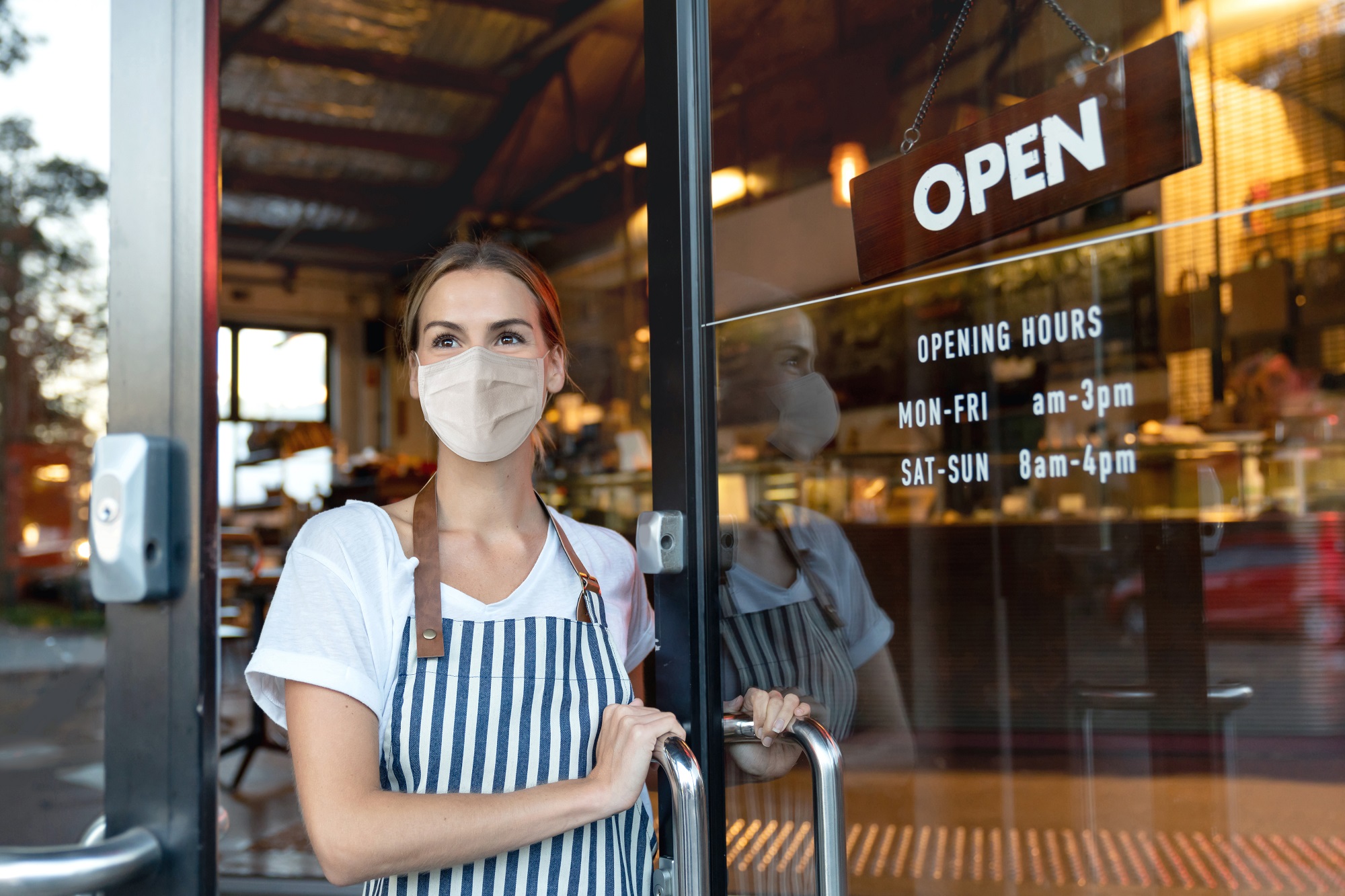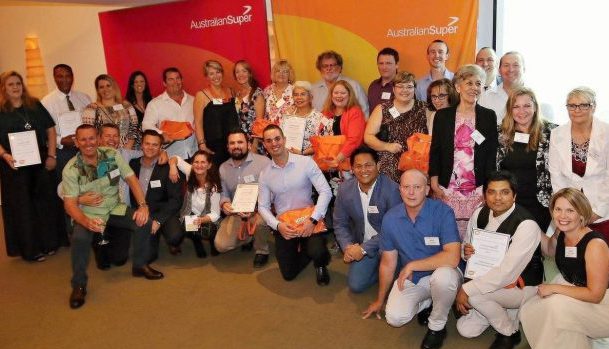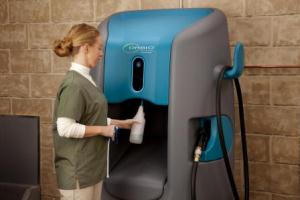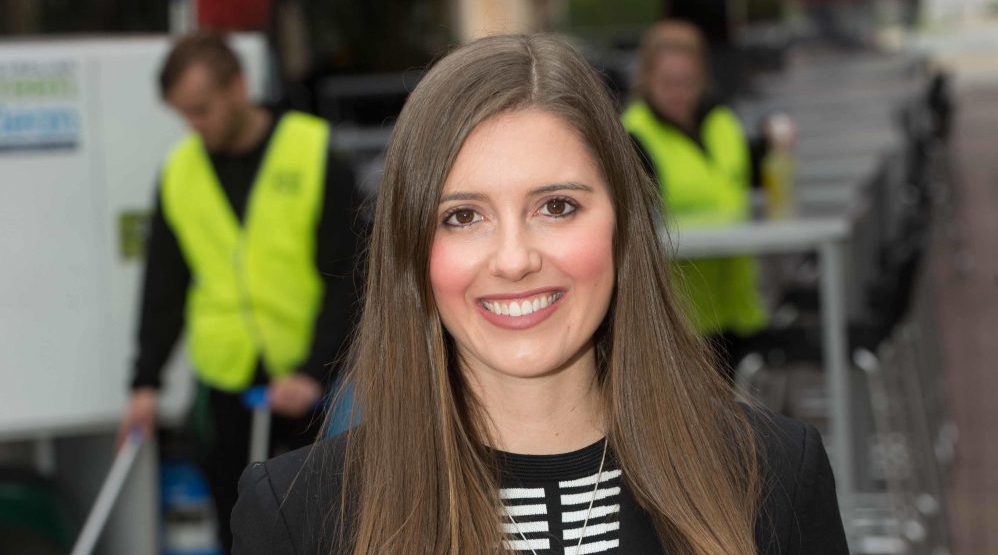
The hospitality sector is on the whole embracing robust hygiene standards and efficient products to protect their patrons and employees, but there is no room for complacency as the impact of the pandemic continues.
For every café, club, pub, and restaurant that has shut its doors during pandemic lockdowns, the financial jitters have been felt by cleaning sector suppliers.
Steve Agar, joint managing director of Agar Cleaning Systems in Victoria, knows the feeling only too well.
He has watched the ebbs and flows of sales for the business’s cleaning chemicals during the past 18 months as hospitality venues have been forced into repeated closures because of COVID-19.
“Our hospitality business went very quiet because restaurants in Melbourne could only do takeaway, so there were less dishes to wash and surfaces to clean, but the other states have carried us through,” he says.
Indeed, Agar says the business grew overall last financial year.
“Even though there was suppressed economic activity in some areas, strong demand for our disinfectants and a resurgence in the economy helped us achieve good figures over the longer term.”
Agar’s experience resonates within a cleaning sector that has had to respond quickly and knowledgably in response to the sanitisation and disinfection requirements of hospitality providers, a sector that has suffered more than most.
Ben Antecki, brand manager at ACCO Brands Australia, believes the cleaning fraternity deserves credit for its response to the pandemic.
Demand has been strong for ACCO’s cleaning chemicals and janitorial supplies as many facilities ramp up hygiene standards.
“In areas such as commercial kitchens, back offices and storage rooms, we are seeing a trend towards increased cleaning schedules and a focus on technology like electrostatic sprayers for hard-to-reach areas and enabling cleaning services to disinfect and sanitise surfaces quickly and efficiently,” Antecki says.
The hospitality facilities themselves have also played a key part, implementing robust hand-cleaning stations that are regularly filled and available to all patrons, in addition to insisting on frequent cleaning and disinfecting practices.
There is still work to be done, though, according to Antecki. As some Australian states begin to lift local restrictions, the need for hospitality venues to consider frequent servicing of often forgotten areas is increasing.
“This includes entry points to public bathrooms, especially the door, hand-rails and light switches,” he says.
“These are areas that are frequently touched and can harbour viruses and bacteria on surfaces. Another area of risk is aprons and uniforms, especially if money and food is often handled by the same service associate in venues such as pubs and coffee shops.”
Training to the fore
As hospitality venues start to reopen permanently, there will be pressure on them to get their cleaning regimes right.
Dr Gavin Macgregor-Skinner, senior director of the Global Biorisk Advisory Council (GBAC), a division of the ISSA in the United States, says training will be crucial.
He believes sectors such as hospitality can take their cues from successful hospitals and nursing homes which have, for example, made YouTube videos that instruct users on how to best use cleaning equipment and disinfectants.
“They learn by seeing and doing,” Dr Gavin Macgregor-Skinner says.
What will not cut it in hotels, convention centres, government buildings and stadiums is simply going back to cleaning systems and processes that existed prior to the pandemic. “Some people are saying ‘this is what we did in 2019 before COVID-19’. Well, that’s not good enough.”
One of the bugbears during COVID-19 for Dr Macgregor-Skinner is that cleaners have not received government endorsement as essential front-line workers.
“Cleaning and janitorial staff should be on the list,” he says.
“You can’t keep a nursing home, a hospital, an airport or a hotel without cleaning staff – not just for COVID-19, but for any situation.”
In essence, he thinks cleaners who have been combatting infectious diseases as part of their daily work have been forgotten.
“The nursing homes got all the front-page news because they got hit so hard, but the cleaning industry got completely abandoned by government and by the public. They didn’t get a lot of care and consideration. No one looked after them.”
GBAC and the ISSA are trying to be good ambassadors for those cleaning staff and championing their work. “They haven’t missed a beat,” Dr Macgregor-Skinner says.
With a view to providing the best outcomes for hospitality providers, Agar expects technical support divisions within cleaning suppliers to be busier than ever.
“Understanding the COVID-19 virus and disinfectants, and how the chemistry relates to them, while meeting the requirements of the Therapeutic Goods Administration has been critical,” he says.
“The technical side of our business has really come to the fore.”
Another issue on the radar is supply chain disruptions, which are hindering cleaning chemical companies’ ability to get raw materials for production. Given the need to work with multiple suppliers in such an environment, Agar says robust checks must be put in place to ensure any raw materials are fit for purpose.
“So, there’s a lot of forward planning, chemistry work and quality verification going on in the background just to make sure that we maintain the high quality and performance standards our product users rely upon.”
Product innovation crucial
Lisa Michalson, director of Cleanstar in Victoria, says her team is focusing on the rollout of proven cleaning and hygiene products as the hospitality sector and others hope for a return to more normal trading conditions.
“The hospitality sector needs to open up as quickly as possible and we are very happy to be a part of this, with the relevant cleaning and hygiene solutions to get people back to work, businesses open and the economy pumping again,” Michalson says.
Cleanstar is a wholesale distributor of commercial cleaning machinery, vac bags, filters, spare parts, accessories and general cleaning and remediation equipment.
The business has expanded its product range to meet COVID-19 demands and is committed to educating industry players about the importance of relevant products, including its commercial-grade HEPA air purifiers.
“Epidemiologists and health officials worldwide are stressing the importance of the use of HEPA-filtered air-purification systems and they’re perfect for hospitality settings like hotels, restaurants, conference venues, and so on.”
Michalson says there is no doubt that indoor air quality will be an increasingly important factor for hospitality facility managers because aerosolised particles carrying the virus stay in the air longer than previously thought. This is where commercial-grade air purifiers will come into their own.
“Most air purifiers out in the market are domestic and ours is commercial-grade, so you require fewer units per room/area compared to a domestic product.”
Health comes first
With people flocking back to restaurants and myriad other venues as lockdowns ease, Dr Macgregor-Skinner says it is crucial that employees, cleaners and others receive the necessary training, so they are prepared for a resumption in activity without jeopardising their health. They should be able to do their job safely and effectively in a safe and healthy indoor space.
Not all the pressure should be placed on cleaners, however.
“We still have this attitude that it’s the person who gets paid $10 an hour whose job it is to keep me safe,” he says.
“Well, hang on, if you understood how you got sick you would take on some of that responsibility as well, and you’d wipe down your desk and areas after you touched them. And you’d wash your hands more often throughout the workday, rather than just waiting for that person who gets paid $10 an hour to solve the problem.”
In a move to help facilities around the world choose appropriate cleaning, disinfection and infection-prevention essentials, GBAC has launched the GBAC STAR Registered Technology & Registered Programs.
It lets manufacturers and other companies verify their cleaning and infectious-disease prevention methods, providing added assurance for facility managers and service providers who are dedicated to cleaning for health.
Antecki expects sustainability to be on the minds of facility managers, too.
“The ability to offer an environmentally friendly cleaning option for the hospitality sector is paramount. In many instances, diluted chemicals such as floor cleaners, disinfectants and degreasers can find themselves being rinsed into overflow drains and/or sinks. Having an environmentally friendly offer helps reduce the impact these chemicals can have on waterways and marine life.”
ACCO’s Northfork brand offers a comprehensive and environmentally preferable cleaning and personal care range certified by Good Environmental Choice Australia (GECA).
Science the key
As epidemiologists, scientists and facility managers prepare to live with COVID-19 and combat the worst of its effects, Dr Macgregor-Skinner says a multi-layered approach with an emphasis on scientific rigour will be essential.
“You don’t have to spray chemicals everywhere,” he says.
“You have to be strategic. What gets measured gets done, so if you can come up with some metrics and indicators that provide real world feedback to employees, janitorial cleaning staff and to the people entering that building, then suddenly it’s all about this assurance of confidence and trust.”
The big challenge, he adds, is that cleaners will have to still clean for appearance and still clean to make things smell good, while ensuring that they clean for health. “We haven’t completely nailed that yet.”
For Agar, the expectation is that Victoria, NSW and other state markets will begin opening up for the long-term, with demands for cleaning chemicals and products becoming more stable as a result.
“After some tough times financially, in addition to heightened hygiene standards, hospitality operators will have their eye on value and productivity,” he says.
“Products with superior performance and realistic pricing will be vital.”
In the hospitality and healthcare sectors, in particular, he believes that focus must return to waste minimisation.
“It’s pretty eye-opening in terms of the waste that the pandemic has generated with things like masks and PPE gear. I think attention will turn back to sustainability. The focus will be on better use of resources, minimising waste and reducing carbon emissions. And it goes through to cleaning and looking for safer and more environmentally acceptable ways of achieving an outcome, as evidenced by our prioritising product licences by GECA and introducing natural bacterial products where possible.”
This article first appeared in the November/December issue of INCLEAN magazine. Read the original article here.
Comment below to have your say on this story.
If you have a news story or tip-off, get in touch at info@incleanmag.com.au
Sign up to INCLEAN’s newsletter.



